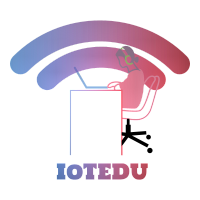IoT is a new name in the technological field. But it is gaining worldwide popularity owing to its ability to connect many devices over a cloud-based network. Internet of things paves the way for easy access and storage of data in real-time. And the invocation of IoT has changed the approach of many domains, healthcare being one of them.

Internet of Things and Patients
IoT clubbed together with new-age devices, enables constant health monitoring and sharing of data. Nowadays, there exist many devices, like fitness bands or mobile trackers. These gadgets keep a check on the patients’ heart rate, blood pressure, glucose content, etc. Physicians can access these data and track their patients’ health conditions.

Internet of Things for Physicians
Now that patients have the wearables that can monitor and track their health status, physicians do not need to conduct basic tests every now and then. Instead, they can keep an eye on their patients in real-time. Also, the doctors study the pattern of their health status throughout the day.
Physicians can trigger remote alarms in the patients’ wearables for their daily exercise routine. Besides, they can limit calorie intake and set reminders for water breaks and medicine schedules. All these facilities have enabled the doctors to reach out to more patients in less time.
Physicians can use the data trends collected from a patient for research purposes. Also, it may help detect the best treatments for the victim.
Internet of Things at Hospitals
IoT in healthcare is a necessity. No one can neglect or ignore its significance. And that is why many modern hospitals are adopting this technology.

IoT aids in asset management too. Now, one can easily control and monitor the distribution of inventory items. Hospitals can track their pharmaceutical needs, blood banks, organ donations, etc. at ease.
Let us look at some use cases
Ingestible Sensors
Ever wondered that you could ingest a sensor? Yes. Technology has made it possible. The invention of ingestible sensors was only possible due to IoT. These sensors resemble simple pills. Swallow them like tablets, and you are good to go.
Your physician can track all your internal system functions without cutting you open. The correct information will aid in the easy facilitation of the treatment. And also, it will prevent delays due to repeated tests.
Smart Wrist Watch
A sensor in disguise, the new smartwatches are a magical invention. It can track almost all your basic health information like calories burnt or consumed, heart rate, oxygen rate, blood pressure, as well as your stress level.
By regular tracking the patients, they themselves can take a look at their healthcare. Also, the physicians can access the data through the cloud and monitor it at ease.
Automated Insulin Delivery Device
This gadget is a life-changing invention. It can automatically detect the blood sugar levels of patients. Also, it can adjust the required insulin level collected in their system. The glucose level is precisely monitored to keep the insulin balanced. This device allows the patients to sleep peacefully at night, with no fear of sudden blood sugar fluctuations.
Asthma Monitor
Asthma monitors are wearables that can detect asthma attacks before its onset. This device reads the symptoms and warns the patient so that he/ she can manage it before the situation gets worse.

Also, it can send warnings to the one taking care of the patients in advance. The device keeps track of inhaler intakes and reminds the user in case of any miss.
Final Thoughts
The deployment of a reliable technology can help doctors to reach out to more patients. And that too only via a simple smartphone. With the internet of things, you can now avoid the rush and extra time for tests. Also, doctors can directly access patients’ health. IoT can make hospitals maintain data logs without the fear of getting stolen or molded and share a copy of all activities to the higher authorities. So, IoT in healthcare can facilitate essential treatments at ease.












